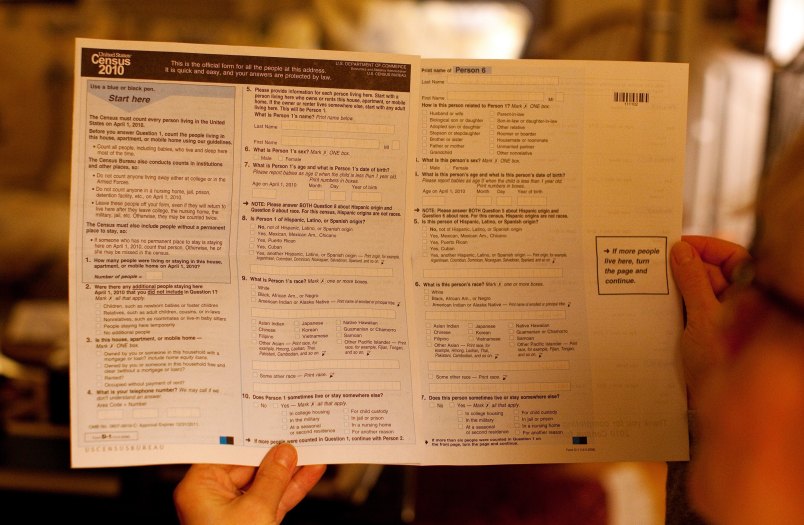Trump Justice Department official John Gore on Friday suggested that the Justice Department has been unable to fully enforce the Voting Rights Act without the decennial Census asking a question about citizenship.
Gore was asked by Rep. Jimmy Gomez (D-CA) at a House oversight hearing whether the Justice Department has been unable to enforce the Voting Rights Act without the data.
“Without accurate citizenship data? Yes,” Gore said, adding that the Justice Department has been “making do” by using extrapolations from the American Communities Survey, an ongoing survey sent to a small portion of the population.
The Census hasn’t asked the question on the version of the survey that goes to all households since 1950. The Voting Rights Act was passed in 1965. Gore spearheaded a DOJ request that the Commerce Department add a citizenship question to the upcoming 2020 Census.
Democrats, Census policy wonks and civil rights advocates fear that asking the question will spook immigrant communities from participating in the Census. An undercount would have a major impact on political representation and federal funding for those populations.
Later in the hearing, Gore cited a Voting Rights Act case brought in Texas by private plaintiffs that he said was thrown out because the court said the ACS data on citizenship was not sufficient.
“We would like avoid that fate,” Gore said. He couldn’t name any other cases where the lack of Census data made a difference, however.
He also clarified his answer to Gomez.
“So, yes, we do need that [data] at the Census block level. Yes, we are making do with the currently available data to draw estimates as to what’s going on at the Census block level,” Gore said. “Our letter lays out why the hard count Census data would be more appropriate for that function, because it’s a hard count, and it would be simpler for us to use.”










